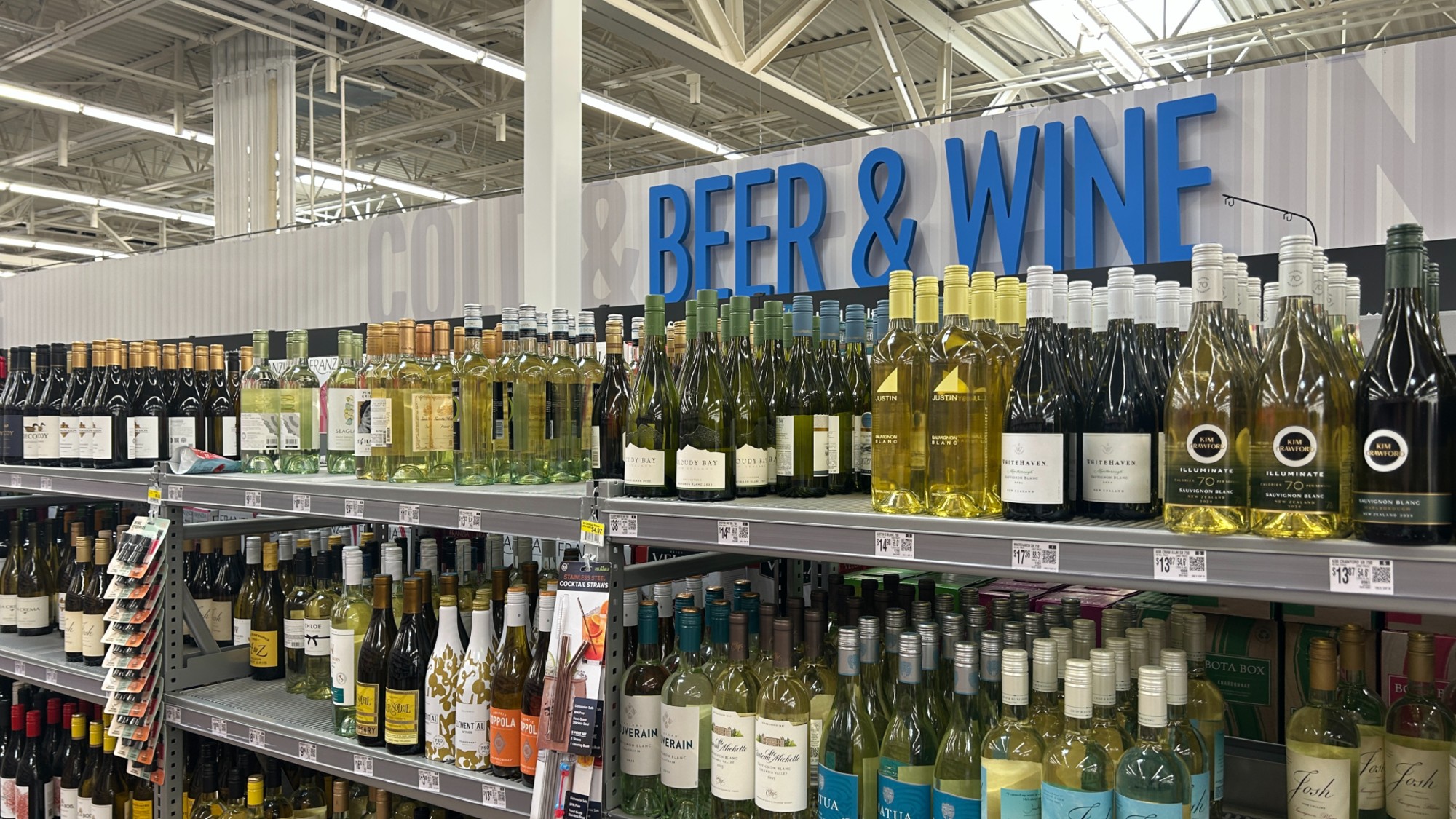Labour government ‘would recognise Palestinian state’
Jeremy Corbyn makes pledge during first overseas visit outside Europe as leader of the opposition

A free daily email with the biggest news stories of the day – and the best features from TheWeek.com
You are now subscribed
Your newsletter sign-up was successful
Jeremy Corbyn has said a Labour government would recognise the state of Palestine, a major shift in long-standing British foreign policy in the Middle East.
Speaking in Jordan during his first international trip outside Europe since he was elected Labour leader in 2015, Corbyn said he would take steps towards “a genuine two-state solution” to the Israeli-Palestinian conflict “very early on” if Labour won a general election.
“I think there has to be a recognition of the rights of the Palestinian people to their own state which we as a Labour Party said we would recognise in government as a full state as part of the United Nations,” he said.
The Week
Escape your echo chamber. Get the facts behind the news, plus analysis from multiple perspectives.

Sign up for The Week's Free Newsletters
From our morning news briefing to a weekly Good News Newsletter, get the best of The Week delivered directly to your inbox.
From our morning news briefing to a weekly Good News Newsletter, get the best of The Week delivered directly to your inbox.
In October 2014, the House of Commons passed a motion which called on the Government to recognise Palestine as an independent state. The vote in parliament was “seen by many as a landmark moment in British policy on the Palestinian question” says The Guardian, even though the Conservative-led government “made it abundantly clear that the parliamentary vote will not change its position on the Israel-Palestine issue”.
At the time, the paper reported that many on Israel’s left appeared to think full recognition by Britain “will advance the prospect of a two-state solution”.
However, since then increasing violence between the two sides and a new president in Washington have seen hopes of a two-state solution recede.
Corbyn has been a long-standing supporter for Palestinian statehood and a vocal critic of Israel's occupation of the West Bank, Gaza and East Jerusalem. He criticised Donald Trump's’ decision to move the US Embassy in Israel to Jerusalem as a “catastrophic mistake” and attacked Western “silence” over Israel’s killing of Palestinian protesters on the Gaza border, even suggesting Britain should stop the sale of arms to the country.
A free daily email with the biggest news stories of the day – and the best features from TheWeek.com
But, “Corbyn's support for the Palestinian cause, as well as his failure to address anti-semitism within the Labour Party, has been roundly condemned by the Jewish community in the UK” says the Jerusalem Post.
With the trip to Jordan, “Corbyn appeared to be attempting to boost his foreign policy credentials” says The Independent.
Over the weekend, the Labour leader toured Zaatari, Jordan’s largest camp for Syrian refugees, and later visited a decades-old camp for Palestinians uprooted during Arab-Israeli wars.
He also attacked the government’s refugee policy, saying Britain could do much more to shelter Syrian refugees, particularly unaccompanied children, arguing that the government’s quota of 20,000 refugees is “very, very small compared to any other European country”.
The timing of his trip was questioned by some, conveniently coming on the two year anniversary of the UK’s vote to leave the EU, which saw up to 100,000 people take to the streets of London to call for a second ‘People’s Vote’ on the final Brexit deal.
-
 How the FCC’s ‘equal time’ rule works
How the FCC’s ‘equal time’ rule worksIn the Spotlight The law is at the heart of the Colbert-CBS conflict
-
 What is the endgame in the DHS shutdown?
What is the endgame in the DHS shutdown?Today’s Big Question Democrats want to rein in ICE’s immigration crackdown
-
 ‘Poor time management isn’t just an inconvenience’
‘Poor time management isn’t just an inconvenience’Instant Opinion Opinion, comment and editorials of the day
-
 How corrupt is the UK?
How corrupt is the UK?The Explainer Decline in standards ‘risks becoming a defining feature of our political culture’ as Britain falls to lowest ever score on global index
-
 ‘Bad Bunny’s music feels inclusive and exclusive at the same time’
‘Bad Bunny’s music feels inclusive and exclusive at the same time’Instant Opinion Opinion, comment and editorials of the day
-
 Is the Gaza peace plan destined to fail?
Is the Gaza peace plan destined to fail?Today’s Big Question Since the ceasefire agreement in October, the situation in Gaza is still ‘precarious’, with the path to peace facing ‘many obstacles’
-
 Reforming the House of Lords
Reforming the House of LordsThe Explainer Keir Starmer’s government regards reform of the House of Lords as ‘long overdue and essential’
-
 How long can Keir Starmer last as Labour leader?
How long can Keir Starmer last as Labour leader?Today's Big Question Pathway to a coup ‘still unclear’ even as potential challengers begin manoeuvring into position
-
 How Iran protest death tolls have been politicised
How Iran protest death tolls have been politicisedIn the Spotlight Regime blames killing of ‘several thousand’ people on foreign actors and uses videos of bodies as ‘psychological warfare’ to scare protesters
-
 ‘The science is clear’
‘The science is clear’Instant Opinion Opinion, comment and editorials of the day
-
 The Board of Peace: Donald Trump’s ‘alternative to the UN’
The Board of Peace: Donald Trump’s ‘alternative to the UN’The Explainer Body set up to oversee reconstruction of Gaza could have broader mandate to mediate other conflicts and create a ‘US-dominated alternative to the UN’